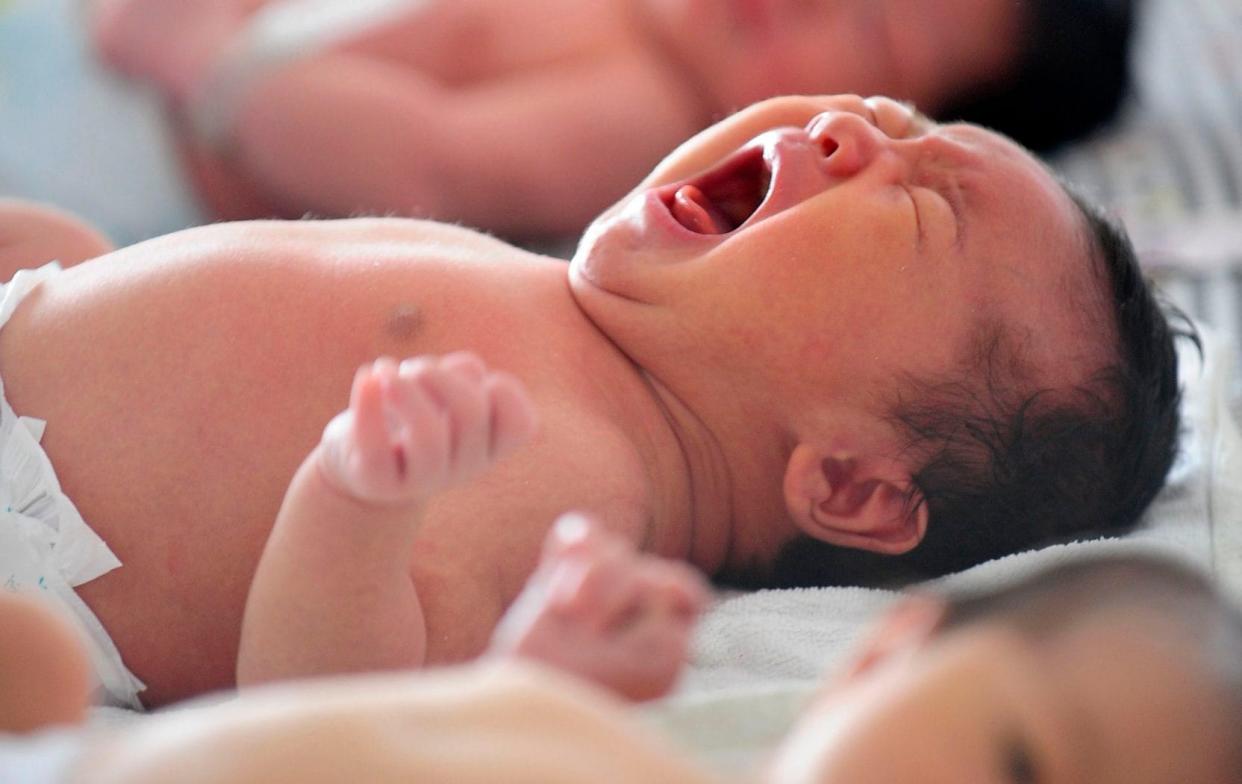My modest proposal to show the young how lucky they are

- Oops!Something went wrong.Please try again later.
On a flight back from Italy this week, I was in front of a mother with a toddler. As soon as I sat down, the boy began screaming as though he had been bitten by a snake. He stuck to his task with admirable gusto for the next hour. Nothing calmed him. Not snacks, singing, anger. Even the iPad, the heavy artillery of toddler soothing, failed to sway him from his course. I was impressed. If only adults were so dedicated.
Other passengers tutted and shook their heads. To me, his screams were bliss, turned to heavenly music by a single fact: it wasn’t my child. If you are used to travelling with small children, any journey without them is business-class. I pitied the frustrated flyers around me. Their concerns were pathetic. Oh, do you have to take off your shoes? What a chore. Was there a four-hour delay? Diddums. The plane crashed consigning you to fiery doom? At least you got to listen to a bit of The Rest is History’s series about the Titanic.
If only these mollycoddled losers knew what an incredible privilege it is to use a Stansted toilet alone. To pick up the three for two miniature deodorants in Boots without being harangued for a Peppa Pig magazine. To read a book.
National Service gets all the press, but my National Parenting Service would be much better. Under this scheme, everyone would have to spend a year in their early 20s looking after a couple of under-fours. I am inspired by the Norland nannies, who apparently train on dolls that never stop crying. My more extreme plan would solve the childcare crisis and turbocharge the economy. When these young people handed back their charges, they would have a renewed appreciation for life’s freedoms. A 6am alarm would seem a mercy, the office a blessing, a delayed train an opportunity to write poetry.
I can only see one problem with my scheme: it would do nothing to increase the birth rate.
When the chips are down
Elon Musk’s latest wheeze is Neuralink, a firm developing brain-implant chips. Such inventions have long been a staple of science fiction. What would you want from such a device? Unlimited general knowledge? Genius insight? The ability to realise when you are telling someone a story you have told them before?
This week Neuralink released the first video of a patient with a chip fitted. Noland Arbaugh has been paralysed from the shoulders down since a diving accident. The chip let him control a cursor on-screen using his thoughts. A remarkable invention. But the first thing he did with this new power was to play Civilisation VI, a computer game in which you guide a fledgling people through 6,000 years of human history.
There is a satisfying irony in this man, at the very tip of human progress, diving at once into a make-believe world. By the time of the video, he had moved on to computer chess, a more respectable game but a game nonetheless. Those who have played Civilisation VI will know that the simplest way to win is to prioritise technology at all costs and then colonise space or attack anyone who stands in your way. Musk might be a fan, too.
No, minister
New polling for Times Radio asked the public what they thought of Fiona Wilson, supposedly a Labour rising star. Forty-seven per cent claimed to know who she was, while 15 per cent had a favourable view of her. The ruse is that she is fictitious, an invention of the pollsters.
The situation is even worse for the Conservatives. Although the made-up Tory minister, “Henry Thorpe”, was more recognisable than the real Energy Secretary, Claire Coutinho, he also enjoyed a net favourability rating of minus 5. The Tories’ reputation has got to the point where even theoretical ministers are doing a bad job.
As well as serving as a reminder of how little the public knows about politicians, the results reflect a yearning to know even less. In an ideal world, we would know almost nothing about our MPs, except that they were dedicated public servants running the country well. Sadly they keep obliging us to find out about them, by being incompetent, attention-seeking or both. It is a relief to see a name that you do not immediately associate with a scandal or disaster, even if they turn out not to be real.

